My guest this week is Orna Ross, who many of you know as ALLi's founder and director. But there's another Orna Ross you may not know. This is the one who has taken a long journey from her childhood steeped in the storytelling culture of Ireland to her career as a journalist and then traditionally published novelist, a cancer survivor, and a poet. That's the Orna Ross we're going to meet today.
Every week I interview a member of ALLi to talk about their writing and what inspires them, and why they are inspiring to other authors.
A few highlights from our interview:
On Storytelling in Ireland
We had a pub and everything's a story in Ireland. You know, if you go into a room and there's more than three people there, each person is holding up that room. Everybody in Ireland takes responsibility for what's called “the crack.” So you must join in the storytelling. It just happens. That's the way it is. There are no listeners, everyone's a talker.
On Cancer Treatment
So just one thing after another happened, and cancer was part of it. It was one thing that happened but it was by no means the only thing and it was by no means the worst thing. And it was just a period of life where it was just crazy. It was pretty heavy. And then I had a reaction to chemo and it was five years of the treatment and you know it was a rough ride at the time. It's over now. I don't think about it at all. I don't define myself in that way.
Listen to my Interview with Orna Ross
Don't Miss an #AskALLi Broadcast
Subscribe to our Ask ALLi podcast on iTunes, Stitcher, Player.FM, Overcast, Pocket Casts, or Spotify.
On Inspirational Indie Authors, @howard_lovy interviews ALLi founder @OrnaRoss. But there's another Orna Ross you may not know—one who was taking a long journey from her childhood steeped in the storytelling culture of Ireland. Share on XFind more author advice, tips and tools at our Self-publishing Author Advice Center: https://selfpublishingadvice.org, with a huge archive of nearly 2,000 blog posts, and a handy search box to find key info on the topic you need.
And, if you haven’t already, we invite you to join our organization and become a self-publishing ally. You can do that at http://allianceindependentauthors.org.
About the Host
Howard Lovy has been a journalist for more than 30 years, and has spent the last six years amplifying the voices of independent publishers and authors. He works with authors as a book editor to prepare their work to be published. Howard is also a freelance writer specializing in Jewish issues whose work appears regularly in Publishers Weekly, the Jewish Daily Forward, and Longreads. Find Howard at howardlovy.com, LinkedIn and Twitter.
Read the Transcripts From my Interview with Orna Ross
Howard Lovy: I'm Howard Lovy, and you're listening to Inspirational Indie Authors. Every week I feature a member of the Alliance of Independent Authors to find out what inspires them, and how they are an inspiration to other authors. My guest this week is Orna Ross, who many of you know is ALLi's founder and director.
But there's another Orna Ross you may not know. This is the one who was taking a long journey from her childhood steeped in the storytelling culture of Ireland, to her career as a journalist and a traditionally published novelist, a cancer survivor and a poet. That's the Orna Ross we're going to meet today.
Orna Ross: I'm Orna Ross and I am a novelist and more recently a poet. I was born and raised in Ireland, but I moved to London at the age of 50, and I've lived here now for 10 years or so. I have two children and I work with my husband Philip in the nonprofit the Alliance of Independent Authors.
Howard Lovy: Orna came from a practical family. So while she was in love with writing, she could not have imagined becoming a writer.
Orna Ross: I wouldn't have been able to give myself permission when I was young to write so I knew I wanted to go to, you know, do English Lit at university and I fought for that. My family are very practical and my brothers are in insurance and accountancy and one's an engineer and my father was in insurance. So they ran the pub and the shop, business people who, you know, very practical-minded. I don't know where I came from. Completely different, was in love with words from the first moment.
Howard Lovy: Even though her family wasn't exactly encouraging, you cannot help but to fall in love with writing growing up in Ireland, where words are like oxygen.
Orna Ross: We had a pub and everything's a story in Ireland. You know, if you go into a room and there's more than three people there, each person is holding up that room. Everybody in Ireland takes responsibility for what's called “the crack.” So you must join in the storytelling. It just happens. That's the way it is. There are no listeners, everyone's a talker. So there are constantly stories and I was brought up in a part of Wexford, which is in the southeast and in a very rural community where life hadn't changed much over the centuries and it's kind of cut off down in that corner doubly. There's a small corner where I grew up was cut off by a river and a mountain and that's echoed in the county as well with a bigger river and a bigger mountain. So it's quite an enclave and it was where the Norman Conquest happened back in 1066. And so there was old English mixed with Gaelic into a particular dialect. So there are loads of words still used in Wexford that are not found anywhere else in the world and their ways, you know, turns of phrase and ways of telling stories and everybody talked about ,for example, the Norman Conquest as if it happened, you know, last year. There's this sense of history being something that's very current and very alive still, for a lot of people.
Howard Lovy: Orna went on to university to study English literature and history, and then began teaching at a convent school for a short time.
Orna Ross: I loved the actual teaching, but I did not love the convent institution. I was very glad to get out of, I went to a convent boarding school. I was very glad I was actually was asked to leave. I was expelled, basically. And it wasn't hard to be expelled from Convent School. To be honest, all I did was go to a dance at 16 years of age, it wasn't that terrible. But yeah, I didn't love going back into that system as a teacher. So I ended up not and took a variety of different jobs and then admitted to myself, actually, what I really want to do is write.
Howard Lovy: So Orna began writing features for magazines and newspapers. And then she realized that she really wanted to write a novel and for that, she went back to an old family story.
Orna Ross: But I did have a moment in secondary school when I was about 14. I have a colourful family history, who doesn't? And I do remember saying to the girl that I saw besides in school, “Someday I'm going to write a novel about this” because I had a family history whereby one of my Uncles was killed in our civil war, which lasted for about a year and a half after Ireland got partial independence. There was quite a nasty small but brutal civil war and my father's family was caught up in that.
His uncle was killed by his best friend. That was a huge question for me, how that could have happened and everywhere I went looking at that story, I just found fascinating things about women at that time that had been completely lost to our history lessons. And it was really interesting in school because we we went straight from sort of Ireland's glorious Revolution to the Irish Eucharistic Congress, which was 10 years later and they skipped out completely the Civil War. It wasn't covered in our history books at all.
Howard Lovy: Orna found a wealth of material in not only her family's story, but in researching that historical time period of the early 20th century and she fictionalized the account.
Orna Ross: Then this huge multi-layered novel came about, sort of four generations, you know, multi-layered, two time periods, Europe and San Francisco. So it became a novel about intimate war of all kinds, sexuality, gender, as well as national, Ireland. So all of that was in there. So when I was writing, it in my mind, it was called After The Rising. So we had the Irish rising, it's kind of famous in history, 1916 Easter Rising.
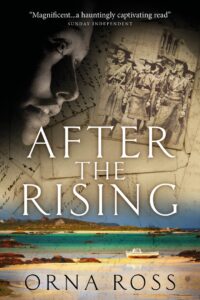 What I was interested in was this sort of bitterness that emerged afterwards and what happens after revolution generally. So you have your flare up and and your revolution but what happens in the process of trying to get back to peace and back to normal life, and that's what interested me. So it's called After the Rising and I, you know, I wrote it and sent it off, tried to get a publisher as you did in those days, it was the only way to get into publication back then, and it took me a long time to find a publisher. And then when I did, they changed the title and change the treatment and made it something quite different. So for a while it was published first as Lovers Hollow. But when I self published then later on, I took back the original title that I had in mind for it.
What I was interested in was this sort of bitterness that emerged afterwards and what happens after revolution generally. So you have your flare up and and your revolution but what happens in the process of trying to get back to peace and back to normal life, and that's what interested me. So it's called After the Rising and I, you know, I wrote it and sent it off, tried to get a publisher as you did in those days, it was the only way to get into publication back then, and it took me a long time to find a publisher. And then when I did, they changed the title and change the treatment and made it something quite different. So for a while it was published first as Lovers Hollow. But when I self published then later on, I took back the original title that I had in mind for it.
Howard Lovy: A second book came out with Penguin. And again, Orna did not love the treatment. That was when she started thinking seriously about what happens beyond that big publishing contract.
Orna Ross: But you know, it's like the teenage girl who never thinks beyond the wedding. I just assumed and I think a lot of writers did then, certainly, and still do, perhaps. You don't think beyond the signing of that first contract. You think that's going to be the end of your troubles. All you're going to have to do then is kind of write and it didn't turn out like that. And now, of course, I'm very glad that it didn't because it led me into self publishing. And that led me into forming ALLi and you know, that has definitely been the best move for me. And, you know, I'm very happy with how all that went.
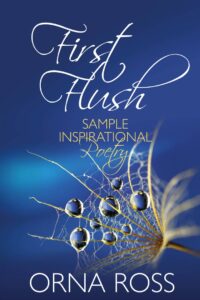 Howard Lovy: Alongside her founding of ALLi, Orna also, for the first time, thought seriously about publishing her poetry. Like many writers, she tried poetry when she was young, and then gave it up. But it took a traumatic event, the death of a good friend, to get her to experiment with poetry again. And then she discovered that her poetry connected with others too. In fact, poetry itself is going through a revival, possibly as an antidote to many of the toxic words that are out there in our public discourse.
Howard Lovy: Alongside her founding of ALLi, Orna also, for the first time, thought seriously about publishing her poetry. Like many writers, she tried poetry when she was young, and then gave it up. But it took a traumatic event, the death of a good friend, to get her to experiment with poetry again. And then she discovered that her poetry connected with others too. In fact, poetry itself is going through a revival, possibly as an antidote to many of the toxic words that are out there in our public discourse.
Orna Ross: I didn't think about again until I had a major bereavement and in actual fact, that feeds into my first novel. And I started writing poetry again. So I was asked to write a poem for the funeral. A friend of mine, he died of AIDS and he had a very painful and distressing death. Poetry was the only thing that could hold it and it started me writing poetry again. So slowly, I started writing poems again, but very much for myself, my family, my friends; I wasn't thinking about publishing poetry at all. But when it came to self publishing, I thought, well, I'll try a little pamphlet of poetry because in my head, nobody reads it, I have no expectations for it, and therefore I can't be disappointed. And it's short and easier to put together because I'm not the most technical of people.
And so I started with poetry. And then, you know, it was up on Amazon and it actually sold and I nearly died. I couldn't believe that strangers bought a poetry book of mine kind of thing. And that was really what woke me up to the potential of self publishing and self publishing made a poet of me.
Reading poetry is enjoying a huge resurgence at the moment. Because first of all, it's easy to access, you know, wherever you are at as a reader, you will find a poet is writing something that pleases you. It's short, we can take it in, you know, on our commute, less than that, a couple of minutes and it's deep. I mean, by definition, poetry is deep and meaningful. If it isn't deep and meaningful, it's not poetry. We have a hunger and thirst for that moment because of all that's going on.
Howard Lovy: So at this point, Orna was publishing her fiction, was beginning to rediscover her poetic voice, and was happiest when she was self publishing all of it. So she set out to discover whether an organization existed that connected other indie authors.
Orna Ross: It was because of my own experience of self publishing because I had kind of come to that place of, well, you know what to do when you've got the dream contract and it doesn't go anywhere, and you don't know what to do next? And then suddenly there was self publishing, and I did it and loved it and instantly thought “This is marvelous. I get to join an association of other publishers” and, you know, looked around for one, and there wasn't one doing, you know, the things that I wanted in an association, let me put it that way.
Because it seemed to me the two things that were really important at that time, but still, were excellence and ethics. So I was seeing a lot of self publishing, self published work, that wasn't the standard that it needed to be in order for readers to really enjoy it. And also, there were kind of ethical issues when you publish your own work that come into play that don't have any relevance if somebody else is publishing you, you know, it's kind of taken care of but there are things you have to think about, you know, for example, around reviews or lots of questions.
So ethics and excellence seemed to me to be the two core issues and yeah, as I said, I looked around for an association to join and then there wasn't one doing it the way I would have liked, you know, the kind of organization I wanted to join so it's a bit like, you know, the way they say to writers, “If the book is not there that you want to read, you have to write it. ” Well, it was kind of like “If the association is not there that you want to join, are you going to form it?” I had a long searching night of the soul before I jumped to do this, and it was a jump. It was a leap forward into the unknown. I had no idea really what I was doing.
Howard Lovy: Launching ALLi, moving from Ireland to England with her family was all part of a larger reboot of Orna's life brought about by a cancer diagnosis and treatment.
Orna Ross: That was an incredible time in my life. It was one of those periods in life where life just 100% takes over and hands you so much change and so many different things going on at the same time that all you can do is just take the hands off, and just let it carry you along. And so in the space of a very short time, I closed one business, moved from Ireland to London, and there were all sorts of things going on at a family level and friendship level that led to that.
So just one thing after another happened, and cancer was part of it. It was one thing that happened but it was by no means the only thing and it was by no means the worst thing. And it was just a period of life where it was just crazy. It was pretty heavy. And then I had a reaction to chemo and it was five years of the treatment and you know it was a rough ride at the time. It's over now. I don't think about it at all. I don't define myself in that way.
You know, I know for a lot of people being a survivor is something that's very key to their identity. It hasn't been like that for me. I'm just glad to still be here, obviously, not just for me, but for my whole family. The four of us moved, myself, my husband and my two grown children at that stage. They were in their 20s. Four of us came over together, which is quite unusual and has worked really well. We've all thrived here.
Howard Lovy: As for the future, it's something Orna has been thinking a great deal about. ALLi is seven years old, which is about the time of reevaluation of any relationship. ALLi is beyond the startup phase, and she hopes to be able to return more and more to her first love, which is writing.
Orna Ross: I'm hoping that the next seven years will be, because it won't be startup phase, it will be more maintenance phase that the books will get a bit more time than I've managed to give them in the past seven years. I'm happy with what I have produced under the conditions, you know, I've been working under but, I have plans for fiction and particularly, I have not been able to get at my fiction as much as I would like to. Poetry has been fantastic because you can fit it into the cracks much easier.
But the kind of fiction that I write, because it is research heavy, and that is historical needs, you know, focused and concentrated time that I haven't had in abundance. So I'm hoping that fiction will feature more in the next seven years than nonfiction.
So I've written a huge amount of nonfiction over the past seven years. I'm interested in talking more about the craft of writing then again, which was always a huge interest of mine and but more than talking about the craft of writing, actually just doing more fiction writing, and continuing to write poetry as well. That has been a great joy and definitely something I hope to always continue.

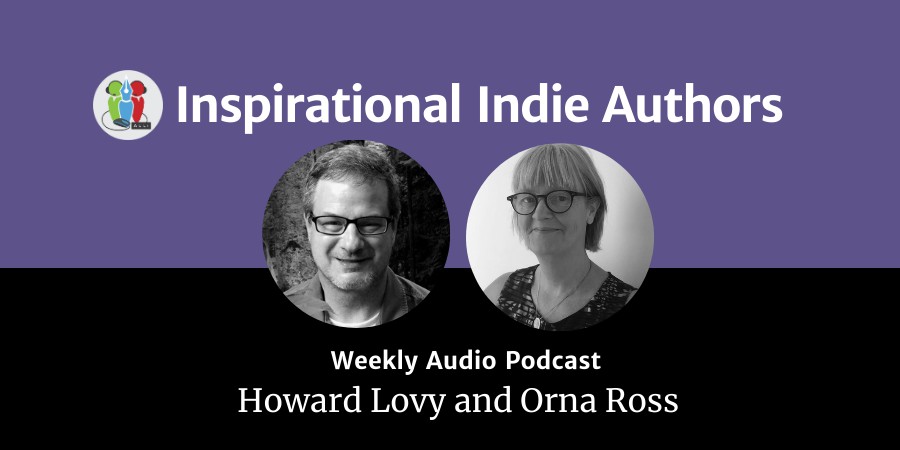


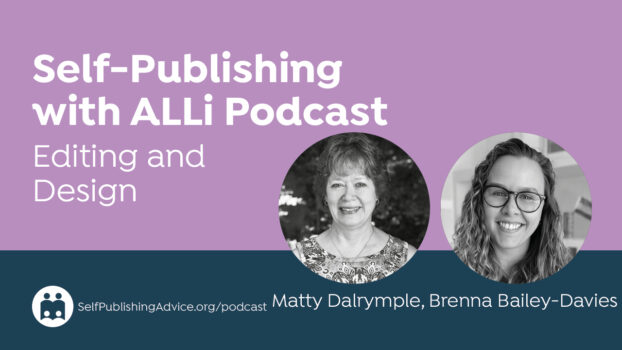
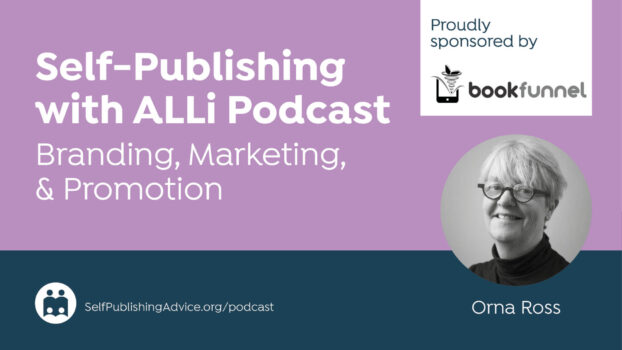
Wonderful interview and loved the music along the way. Orna is absolutely grand.